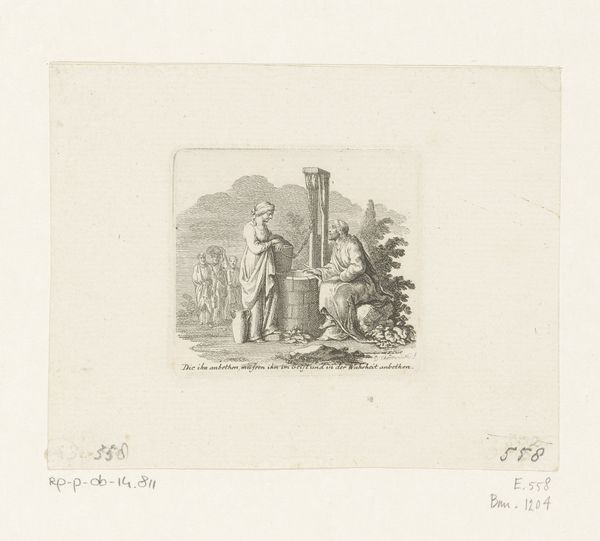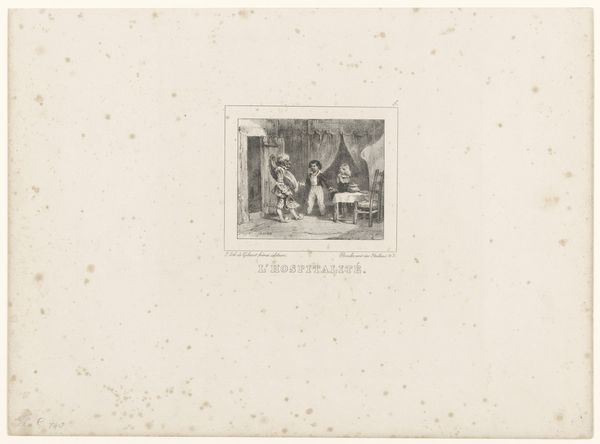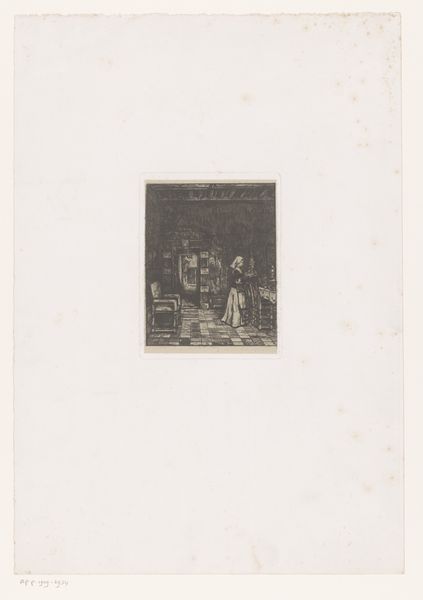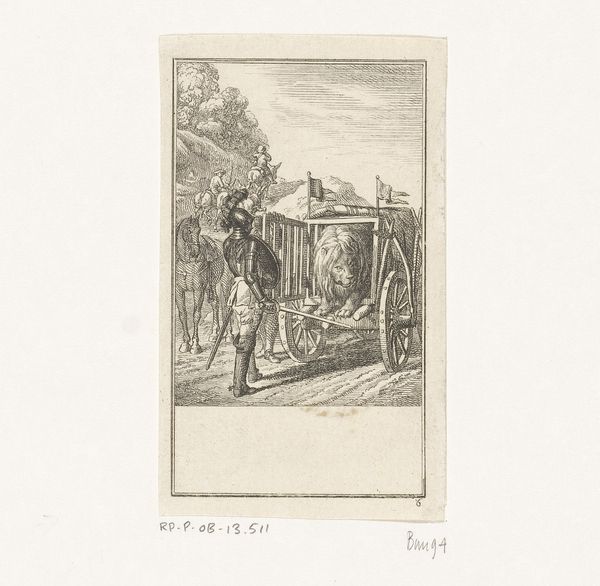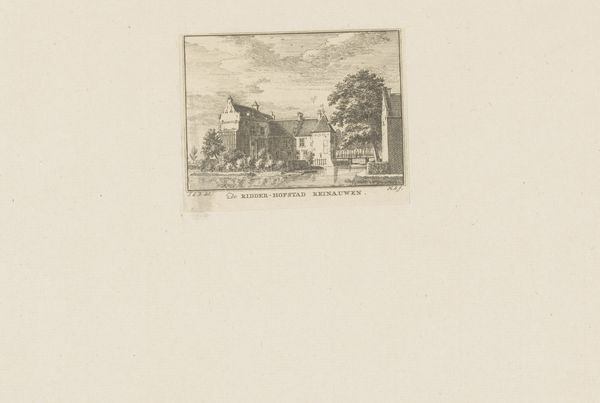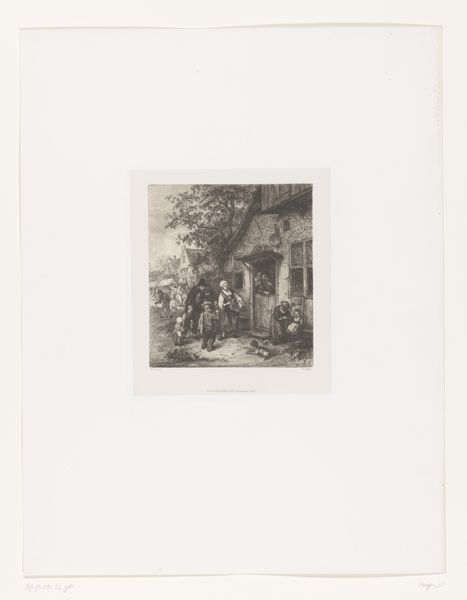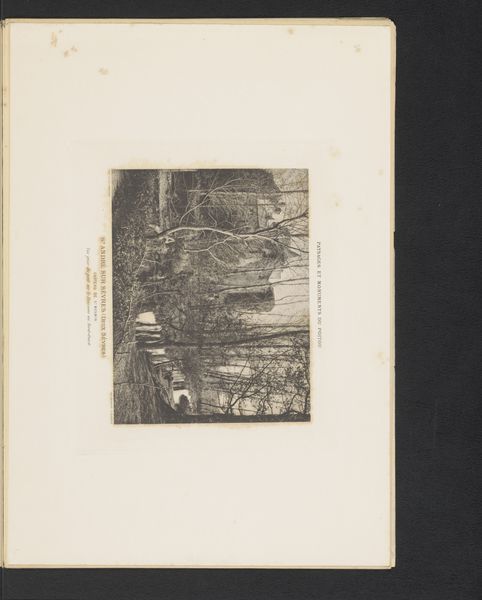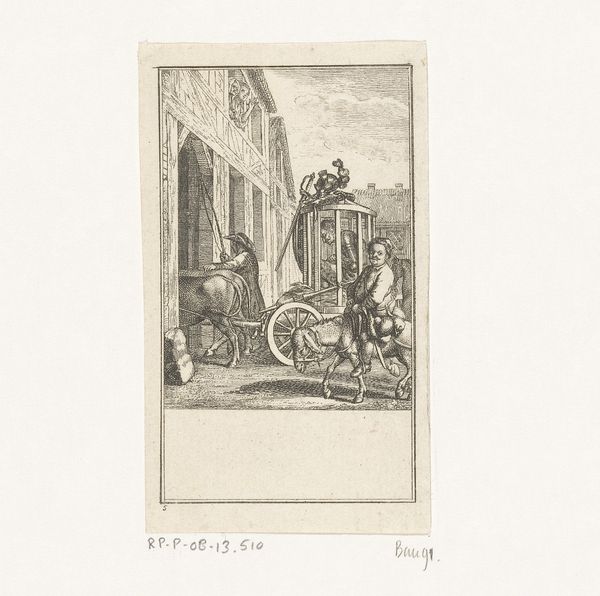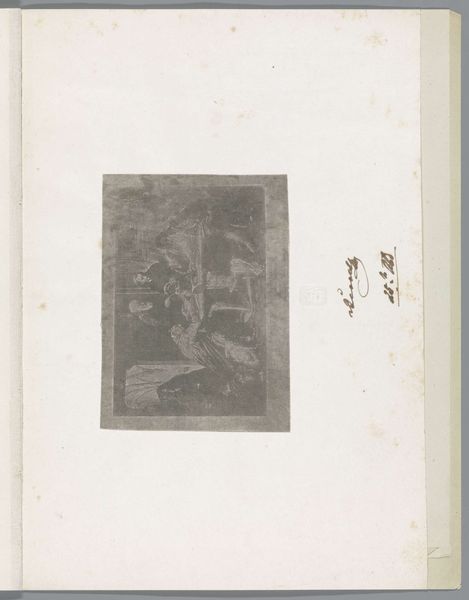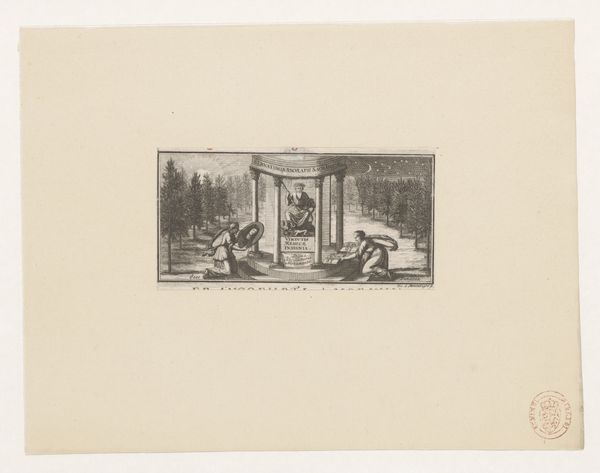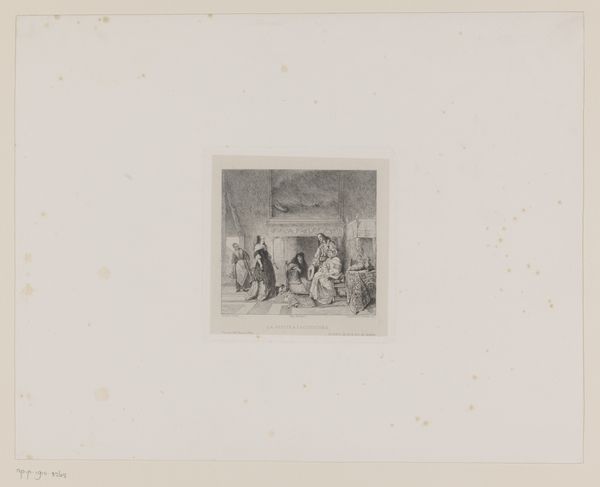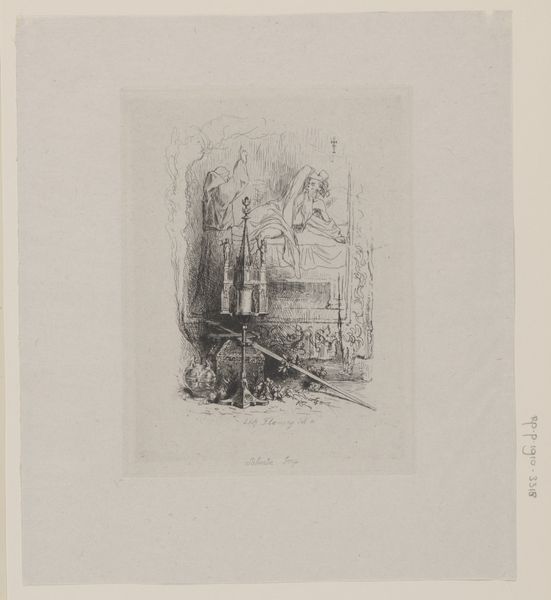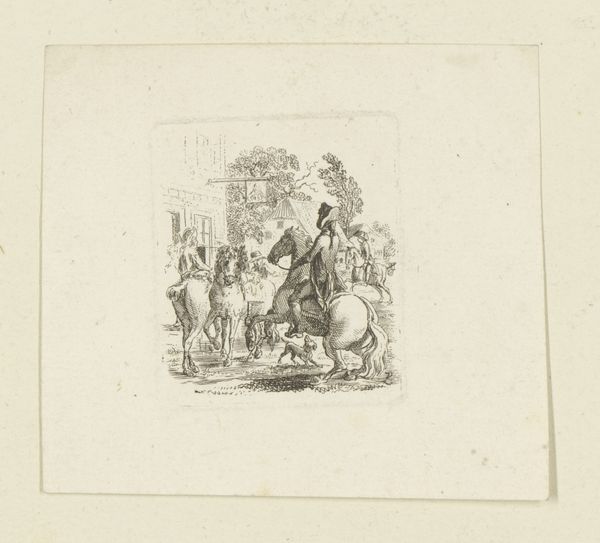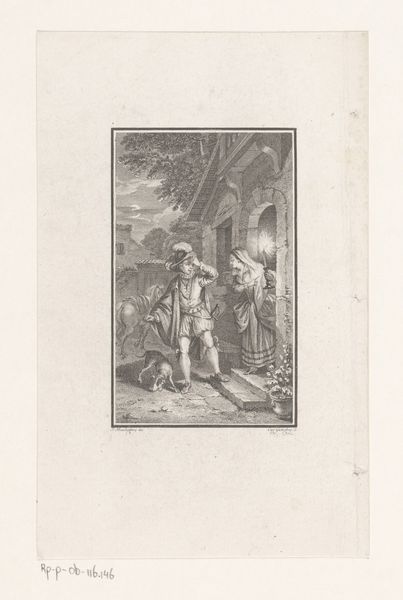
engraving
#
old engraving style
#
landscape
#
figuration
#
11_renaissance
#
history-painting
#
italian-renaissance
#
engraving
Dimensions: height 54 mm, width 39 mm
Copyright: Rijks Museum: Open Domain
This tiny print, "Narcissus," was created by Etienne Delaune in the 16th century, using the exacting process of metal engraving. Look closely, and you can see the fine lines incised into the metal plate to create the image. The process of engraving demanded meticulous skill and a deep understanding of materials. The artist would have used specialized tools to cut lines into the metal plate, and the depth and thickness of each line would determine the amount of ink it held, and therefore the darkness of the printed image. Each print pulled from the plate would be a direct impression of the artist's labor, imbued with the precision and control required by the medium. Prints like this one were luxury items, desired for their exquisite detail and portability. The story of Narcissus, gazing at his own reflection, may have also been read as a cautionary tale about the perils of vanity, or the allure of commodity culture. But whatever its message, the print itself is a testament to the enduring power of human skill and ingenuity.
Comments
No comments
Be the first to comment and join the conversation on the ultimate creative platform.
